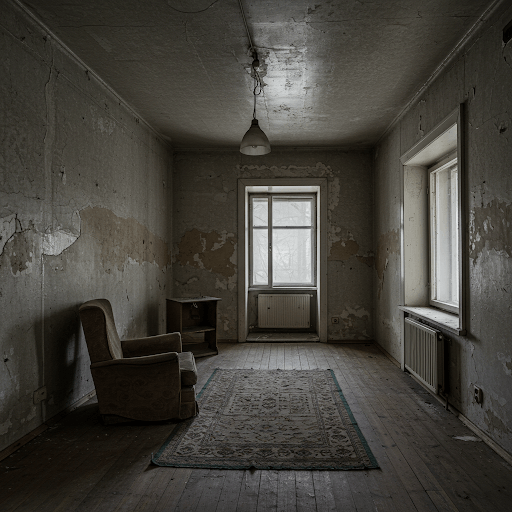The Budapest rental market is often unpredictable, and unfortunately, many landlords try to take advantage of tenants. As a result, many students face the issue that the apartment they chose does not meet their expectations. This situation is particularly unpleasant for international students in Budapest, as they have to assert their rights in an unfamiliar environment and a completely foreign language.
Students often realize they are unhappy with their rental during the first weeks of the semester when they rush to find accommodation and later discover its drawbacks. We have also noticed this trend: many students change their place of residence after their first university semester to move into a better-located and more comfortable student residence – sometimes to our Diáklakás, as we have recently received inquiries from students in similar situations.
In this article, we will discuss common cases where students feel disappointed in their rental, find themselves in a difficult situation, and what steps they can take in response.
What Can a Student Be Disappointed with in a Rental?
1. Loneliness and Lack of Social Life
Many students believe they can go through their university years alone in a rental apartment, but later realize that living alone is too quiet and lonely. The lack of a social life can even lead to signs of depression. This is especially true for international students, who may experience cultural shock in an unfamiliar environment, which takes time to fade. This is completely natural but unpleasant. In a good social community, this process happens much faster.
The author of this article originally planned to live alone during their international university stay (but ended up with a roommate). Looking back, they can confidently say: no matter how tempting it seems, it’s not worth living alone during an international semester. Moving into a student community is much more fun and mentally healthier. It’s worth it!
2. Unexpected Extra Costs
Landlords may unexpectedly demand additional payments. For example, due to increased electricity prices, rising elevator or waste collection fees, higher heating bills (if the contract states the tenant must pay for heating and the winter is colder than expected), or simply increased communal costs that tenants must cover.
Rental contracts often specify that price increases are the tenant’s responsibility, so a previously affordable rent can quickly rise to an unaffordable level for a student.
3. Poor Location and Long Commutes
This is the most common reason students become dissatisfied with their rental. Many students rent apartments far from their university because they have to make a quick decision. Later, they realize the apartment is too far from campus or has poor transportation links.
This means waking up very early to get to class on time. Or, if they need to return home during the day, they can’t just “pop back” because their apartment is too far away.
While this might be tolerable in the short term, long commutes mean less time for studying, socializing, exercising, or even just relaxing. Living in a centrally located apartment close to the university saves students significant time and energy.
The Diáklakás residences have excellent locations, within walking distance or a short public transport ride from universities and key locations in Budapest.

4. Technical Issues and Maintenance Problems
Some landlords shift the costs of maintenance issues onto tenants. In worse cases, they refuse to fix problems at all.
We’ve heard of cases where students had to pay for repairs out of their own pocket, even though they didn’t cause the problem.
At Diáklakás residences, this cannot happen. We resolve all technical issues within 24 hours, and students don’t have to worry about anything. Just report the problem, and we’ll take care of it.
5. Misleading Advertisements and Hidden Defects
Many tenants only realize after moving in that the apartment does not match the photos in the listing. By this point, students are often trapped—they have to stay, and it’s very difficult to find a new apartment quickly at the start of the semester.
Additionally, switching rentals at the start of a semester is very expensive—landlords know this and take advantage by charging 40-60% higher rents than usual.

6. Landlord’s Changed Life Circumstances
We’ve also heard of cases where, after a student moves in, the landlord’s or their family member’s situation changes. For example, a relative (like a grandmother or the landlord’s child) moves back into the apartment, forcing the student to adjust to new living conditions.
Sometimes, this is just a temporary inconvenience, but there is no guarantee the relative will move out quickly. In the end, the student is the one who suffers.
7. Unpleasant Roommates
Initially, roommates might seem great, but over time, roommate changes can bring in new people who are not as respectful or tidy as previous tenants. If roommates are loud, messy, or disrespectful, it can significantly affect a student’s university experience.
8. External Disruptions
Some students only realize after moving in that certain problems were not apparent in the listing. These can include noisy neighbors, bad smells, or, in worse cases, an environment where sleeping and studying become impossible.
These issues can greatly impact a student’s time in the apartment and their overall Budapest experience.
9. Changes in Safety and Unexpectedly Poor Public Security
Finally, another concern is when the safety of the immediate area changes during a student’s stay.
For example, new tenants in the building might be unfriendly or, in the worst case, aggressive towards the student.
In some cases, a student might feel socially excluded by neighbors due to factors like skin color or a lack of Hungarian language skills. This can lead to a very stressful and isolating experience. Especially if the landlord does not support or help the tenant, leaving them to deal with the issue alone.
It is also possible that the area’s public security is much worse than the listing described. Even if a rental ad says the neighborhood is safe, it’s always worth double-checking third-party sources before signing a contract.
All of these factors can lead a student to want to move out of their rental. But what options do they have? Stay tuned for the next section, where we explore potential solutions!
What Can a Student Do If They Are Unhappy with Their Rental?
1. Review the Rental Contract
If the apartment is unsuitable, the first step is to carefully review the rental contract. Important questions to consider:
- Is contract termination an option?
- What notice period is specified?
- Who bears the deposit loss in case of early termination?
2. Find a Better Alternative
If the apartment does not meet expectations, it’s worth looking for a better place—even if it means losing the deposit. Remember: a bad rental can significantly ruin your university experience. It’s not worth enduring constant stress because of it!
For example, our Diáklakás accommodations have excellent locations and provide the benefits of community living.
3. Communicate with the Landlord
If technical issues or unexpected costs arise, it’s best to first talk to the landlord. If the landlord is uncooperative, legal action should be considered.
A good first step is reaching out to:
- The student government at your university.
- The local Erasmus organization, even if you are not an Erasmus student.
These organizations can either provide direct assistance or connect you with a lawyer or a tenant advocacy group that can offer legal support.
Many Budapest universities have student support organizations that help students navigate such issues.
4. Seek a Community-Based Solution
If loneliness is the main issue, consider moving into a student dormitory or a student residence, where it’s easier to make friends, socialize, and enjoy the advantages of community living.
Remember: there’s always a way out of a bad rental decision! Sure, it’s a bit unpleasant and maybe costly, but it’s worth going through this temporary process rather than staying in depressing conditions.
Making the wrong rental choice is common, but there are ways to fix the situation. If a student is unhappy with their apartment, they have several options to resolve the issue—whether that’s terminating the contract, finding a new place, or negotiating with the landlord.
It’s always best to choose an apartment carefully, so you don’t have to move again next semester.
If you’re thinking about relocating but don’t want to spend too much time searching and comparing rentals, feel free to reach out to us!
If we still have available rooms and you find Diáklakás a great fit for you, we’d love to welcome you!



